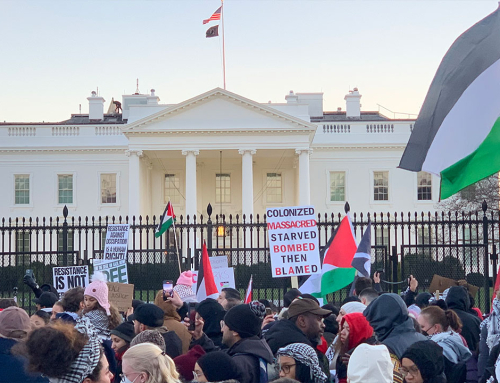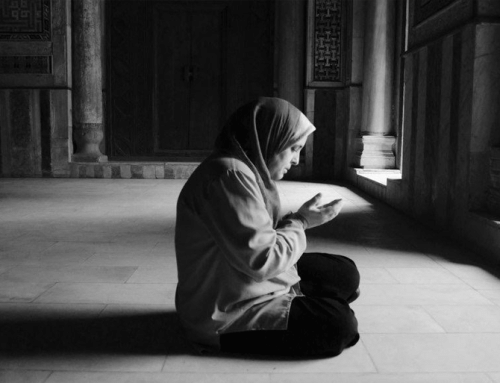Yassine Hicham
January 16, 2024
The essence of resistance lies in its profound confrontation with absolute evil, providing an optimal path to liberation. It is a universal movement of liberation for humanity at large, even if it may initially appear as a struggle for a specific people or land. The resister is, fundamentally, humanity in its struggle against malevolence, garnering global support for their cause. This support is not merely due to the world adopting the Palestinian narrative, but is rooted in the resurgence of humanity to its primordial essence, rejuvenating authentic values that define its spirit. This swift global alignment with the cause and the active participation of the youth emphasize that resistance revitalizes intrinsic values, making them easier to revive, especially in the youth closest to their innate nature.
The recent Flood of Al-Aqsa, represented by the Palestinian resistance as a formidable deluge, has obliterated the evils of prolonged occupation, establishing grounds for unprecedented progress. This Flood reinstates lost self-confidence, revives the glorious memory of the umma, and instills the necessary awareness of spiritual strength. It amalgamates the elements for unleashing creative potentials, effort, and renewal within the umma. At this juncture, the resisters must promptly embrace these catalysts before external forces, the occupier, and their internal allies mobilize to thwart this historic chance for the umma. Such a missed opportunity would regress the umma to the pre-Flood state, characterized by a loss of self-confidence and an aridity of spiritual awareness. Regardless of the approach taken to embrace these opportunities, the critical point is that this Flood necessitates umma-building, grounded in two fundamental aspects: “There is no uplift for the umma without a commitment to resistance” and “There is no resistance without a commitment to belonging to the world.”
Regarding the first fundamental aspect, the umma, exemplified by the Palestinian people, has suffered through the protracted forms of occupation —political, economic, and cultural. In this context, resistance has evolved from a behavioral act to an existential one. It implies that the umma only exists through resistant action, and its right to existence hinges on this action. Resistance, in the context of our umma, is not merely about rectifying legal injustice; it is about securing existential legitimacy. Therefore, this resistance cannot be left to individual choice or discretion; it is a collective endeavor involving the entire umma. Intellectuals of this new era, ushered in by the Flood of Al-Aqsa, must reconsider the concept of “resistance,” establishing it on new principles and deriving supportive concepts from its realities. The Flood of Al-Aqsa has shown that defeating the enemy is more poignant and bitter when its intellect and ethics are vanquished. The defeat of the enemy politically is merely an extension of its intellectual and moral defeat. This kind of defeat resonates deep within the enemy, leaving an indelible mark on its memory. Conversely, the victory of resistance through intellect and morality is a triumph of its essence, a triumph that cannot be erased from the umma’s memory.
As for the second fundamental aspect, “There is no resistance without a commitment to belonging to the world,” it has become evident that the dimensions of Al-Aqsa’s Flood transcend the geographical and cultural boundaries of the umma. This is not merely because its effects have permeated humanity, but because resistance now requires the removal of these boundaries entirely. Resistance must be viewed as an explicit global act binding every individual in humanity, wherever they are and whatever evils they confront. This awareness will undoubtedly enhance its struggle power, coupled with broadening the possibilities of its supply lines.
This result has a more significant impact on Arab resisters than others, given that the Arab regimes, as a whole, have become a hindrance to resistance. They obstruct resistance to the extent that this hindrance resembles that imposed by an occupier, as if these regimes were an “internal occupation.” This is due to several reasons, such as the “political gap between the ruler and the ruled,” the “military elite seizing power through force, aligning with colonial powers,” the “civilian elite adopting foreign cultural values and managing institutions directed by these colonial powers,” and finally, the “normalization series” that has extinguished the remaining spirit of the umma. The only way to overcome this internal obstruction is for resistance to be a constant dynamic movement toward the entire world—peoples and organizations. Given their existence in countries that maintain ties between the ruler and the ruled, these groups and organizations have the potential to correct their policies, as this political correction will resonate within the resistance at home with greater strength, especially considering its global perspective.






